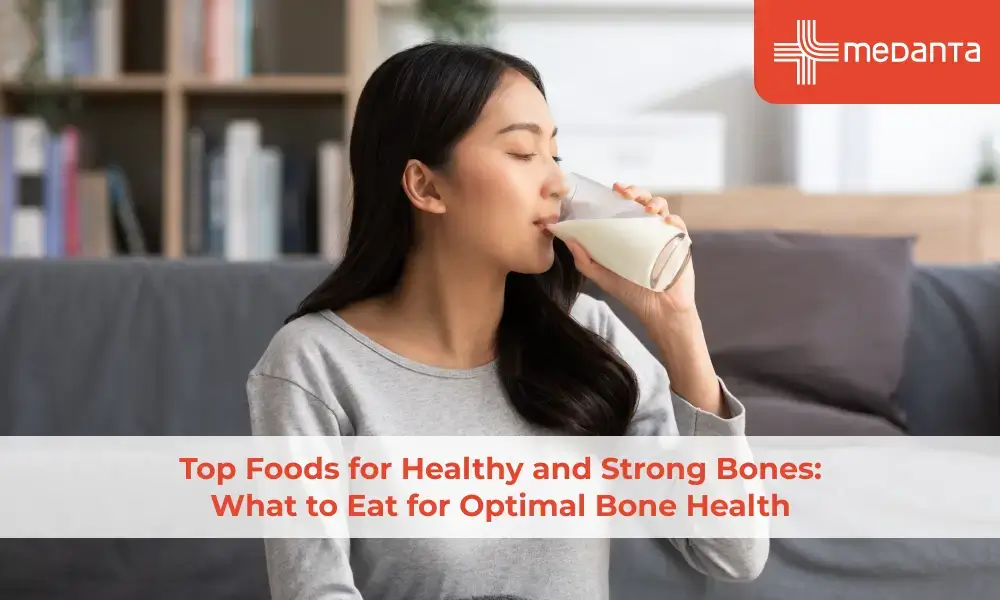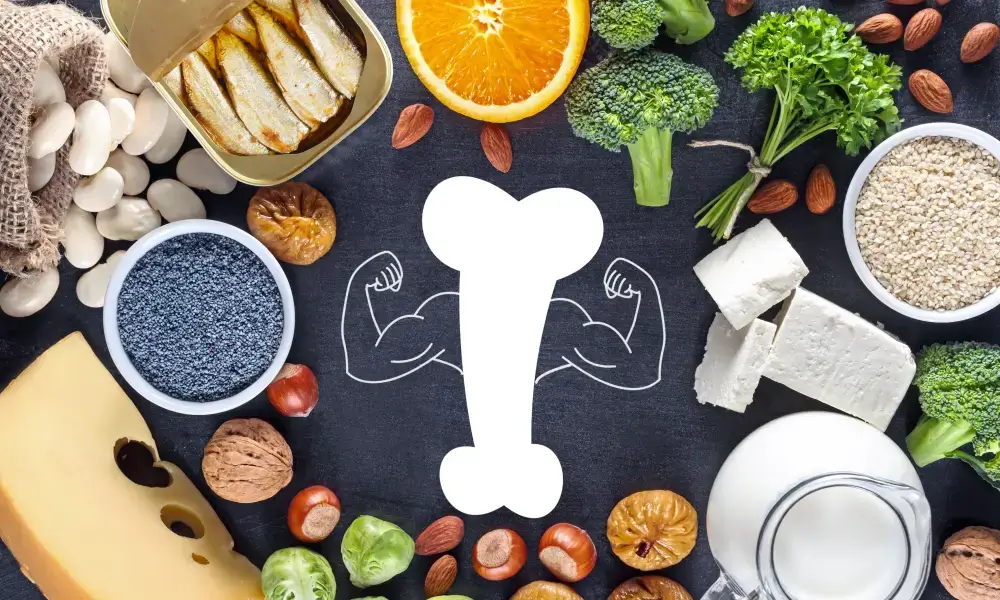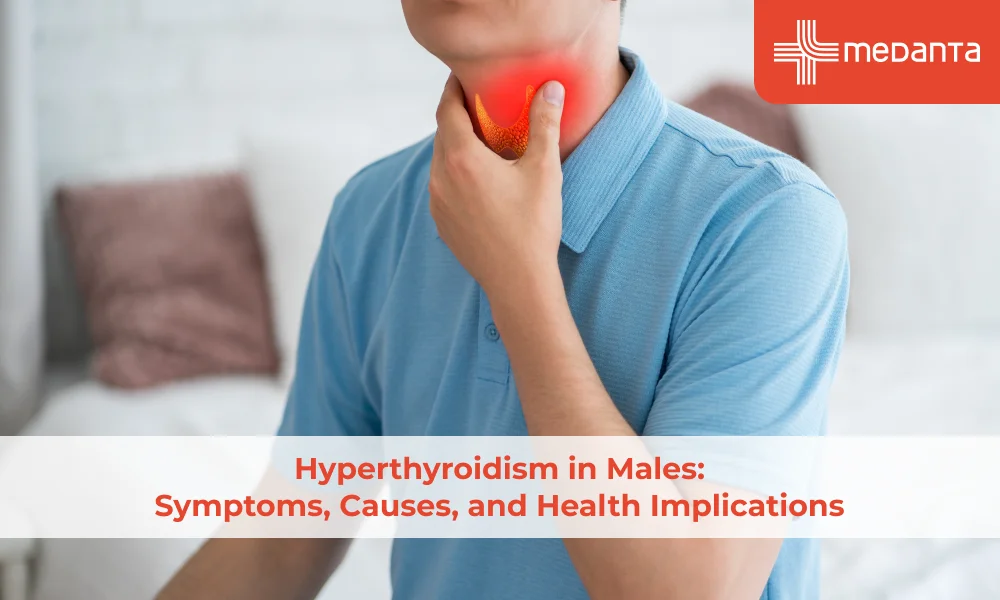Top Foods for Healthy and Strong Bones: What to Eat for Optimal Bone Health

TABLE OF CONTENTS
- What Are the Best Foods for Healthy Bones?
- How Do Dairy Products Like Yoghurt and Milk Support Bone Strength?
- What Role Do Leafy Greens and Vegetables Play in Bone Health?
- How Can Nuts, Seeds, and Whole Grains Benefit Your Bones?
- Are Fatty Fish and Eggs Important for Maintaining Strong Bones?
- Conclusion
- FAQs
Your bones reach their peak mass by age 30. This fact makes food for strong bones and bone-strengthening foods vital to your health. The statistics paint a concerning picture - many adults above 50 will break their hip, wrist, or spine in their lifetime. Women face an even bigger challenge since they account for three out of four hip fractures. These injuries can lead to loss of independence and higher mortality rates.
Good nutrition plays a vital role in keeping your bones healthy throughout life. Most people need 1,000 mg of calcium daily. Teenagers need more at 1,300 mg, while older women should aim for 1,200 mg. Vitamin D teams up with calcium to build stronger bones. Your bones consist of 50% protein. Magnesium helps a lot in forming dense, strong bones.
This article covers food for strong bones of all types, from dairy products rich in calcium to fatty fish packed with vitamin D. You will also find effective ways to add these foods to your daily meals and learn how different food groups help keep your bones strong.
What Are the Best Foods for Healthy Bones?
Your diet is the foundation of healthy bones. Different foods provide vital nutrients that work together to keep your bones dense and strong throughout your life. Best food options are:
Dairy products - rich in calcium and vitamin D.
Leafy vegetables - fulfil calcium and magnesium requirements.
Fatty fish (salmon, sardines, mackerel) - Good source of vitamin D and omega-3 fatty acids.
Oranges & other citrus fruits – supply vitamin C that helps form collagen in bones.
Eggs – contain vitamin D
Nuts and seeds - rich in magnesium, phosphorus, and healthy fats.
Tofu and soy products - plant-based calcium and protein sources.
Whole grains – offer magnesium and small amounts of minerals to support strong bones.
Vitamin D and calcium fortified food products
How Do Dairy Products Like Yoghurt and Milk Support Bone Strength?
A single cup of dairy products delivers between 350-400 mg of calcium
You will find both calcium and vitamin D in low-fat and non-fat milk, yoghurt, and cheese when fortified
Your body releases calcium from bones into the bloodstream for vital functions, and dairy foods help restore these calcium levels
Just 3-4 servings of dairy products or calcium-fortified orange juice can meet your daily calcium needs
What Role Do Leafy Greens and Vegetables Play in Bone Health?

Vitamin K in dark leafy greens helps reduce osteoporosis risk
Cooked turnip greens pack about 200 milligrams of calcium per cup - 20% of your daily needs
Children and young adults who eat more green and yellow vegetables show better bone mineralisation and mass
Research shows women who eat onions regularly have a 20% lower osteoporosis risk
Bone turnover decreased in women who ate more than nine servings of broccoli, cabbage, or similar plants over three months
How Can Nuts, Seeds, and Whole Grains Benefit Your Bones?
Half-cup of almonds gives you 190 mg of calcium, while two tablespoons of almond butter provide 111 mg.
Your bones benefit from potassium in nuts (240 mg in 2 tablespoons of almond butter) which fights calcium-depleting acid.
Vegans can rely on sesame seeds and tahini as excellent calcium sources
Your body needs magnesium from whole grains to balance vitamin D and maintain bone health
Are Fatty Fish and Eggs Important for Maintaining Strong Bones?
You get 187 mg of calcium from 3 ounces of canned salmon because soft bones remain during canning.
Salmon, mackerel, and sardines provide vitamin D that helps your body absorb calcium.
Your bones benefit from vitamin D found in egg yolks
Older adults can protect their bones with omega-3 fatty acids in fish oil, which also promotes new bone formation
Conclusion
Your bones need proper nutrition throughout life to stay strong and healthy.
Most people don't think about their bone health until issues show up, but prevention through good nutrition is much easier than treatment. The body requires a balanced diet with key nutrients to build and maintain bone density. This becomes even more crucial after bone mass peaks at age 30. Calcium is the foundation of bone health, but vitamin D, protein, and magnesium are just as important to build a strong skeleton.
The best way to protect your bones isn't about focusing on just one food group. You need to mix different bone-strengthening foods into your daily meals. Start your day with yoghurt and almonds, grab a lunch salad loaded with dark leafy greens, and finish with salmon for dinner. This creates a complete nutrition plan for your bone health. These nutrients work best together, not separately.
Taking care of your bones needs constant attention, but the benefits go way beyond the reach & influence of just preventing fractures. Strong bones help you stay mobile, independent, and enjoy life as you age. So making bone-friendly foods a priority today is an investment in your future health and wellbeing. Simple changes in your diet can make a huge difference to your bone strength and resilience over time.
FAQs
Which foods are richest in calcium for bone health?
Dairy products are excellent calcium sources. If you don't consume dairy, try canned sardines with bones - they pack 325 mg per 3-ounce serving. Cooked collard greens, tofu and kale are also good sources of calcium.
How does vitamin D from foods like eggs and fish help bones?
Think of vitamin D as calcium's best friend. Your body can absorb only 10-15% of calcium without it. It helps calcium absorption in your intestines and improves bone mineralisation. You will find it in oily fish (salmon, mackerel), egg yolks, and fortified cereals. You should also spend 15-30 minutes in midday sunlight.
Can plant-based foods like tofu and soy milk strengthen bones?
Yes. Calcium-set tofu packs 250-400 mg calcium per half cup. Most fortified plant milks contain 300-450 mg per cup. Your body actually absorbs calcium better from plants than cow's milk. A cup of soybeans gives you 175 mg, making them great bone builders.
What are the benefits of magnesium and vitamin K for bones?
Your bones love magnesium. It balances vitamin D and helps form bones. You will find plenty in nuts, seeds, whole grains and leafy greens. Your bones store 60% of your body's magnesium. Vitamin K builds bones and lowers fracture risk. Dark leafy vegetables, natto, and sauerkraut are rich sources.
How do omega-3 fatty acids from walnuts and fish reduce bone inflammation?
Omega-3s boost bone health by building new bone tissue and slowing bone loss. Research shows people who eat more omega-3s have a substantially lower osteoporosis risk. Women under 60 and non-smokers see the best results. These fats work by managing calcium balance, inflammatory cytokines, and prostaglandins.
Why should high-salt and processed foods be limited for bone health?
Salt is tough on your bones. It makes you lose more calcium through urine. High sodium forces your body to pull calcium from bones to keep blood calcium steady. This weakens your bone structure over time. Keep salt under 6g daily to protect bone density and reduce fracture risk.






